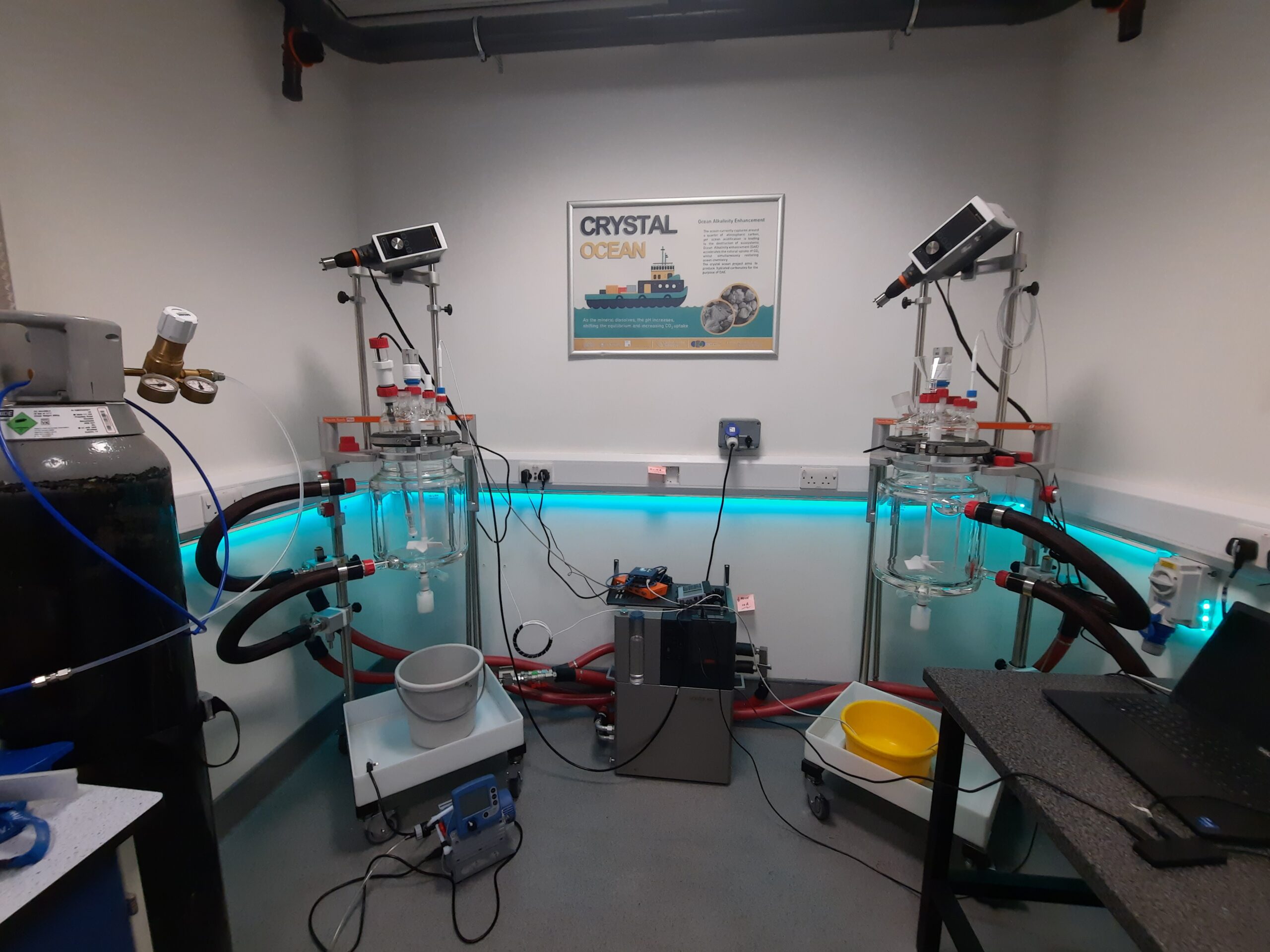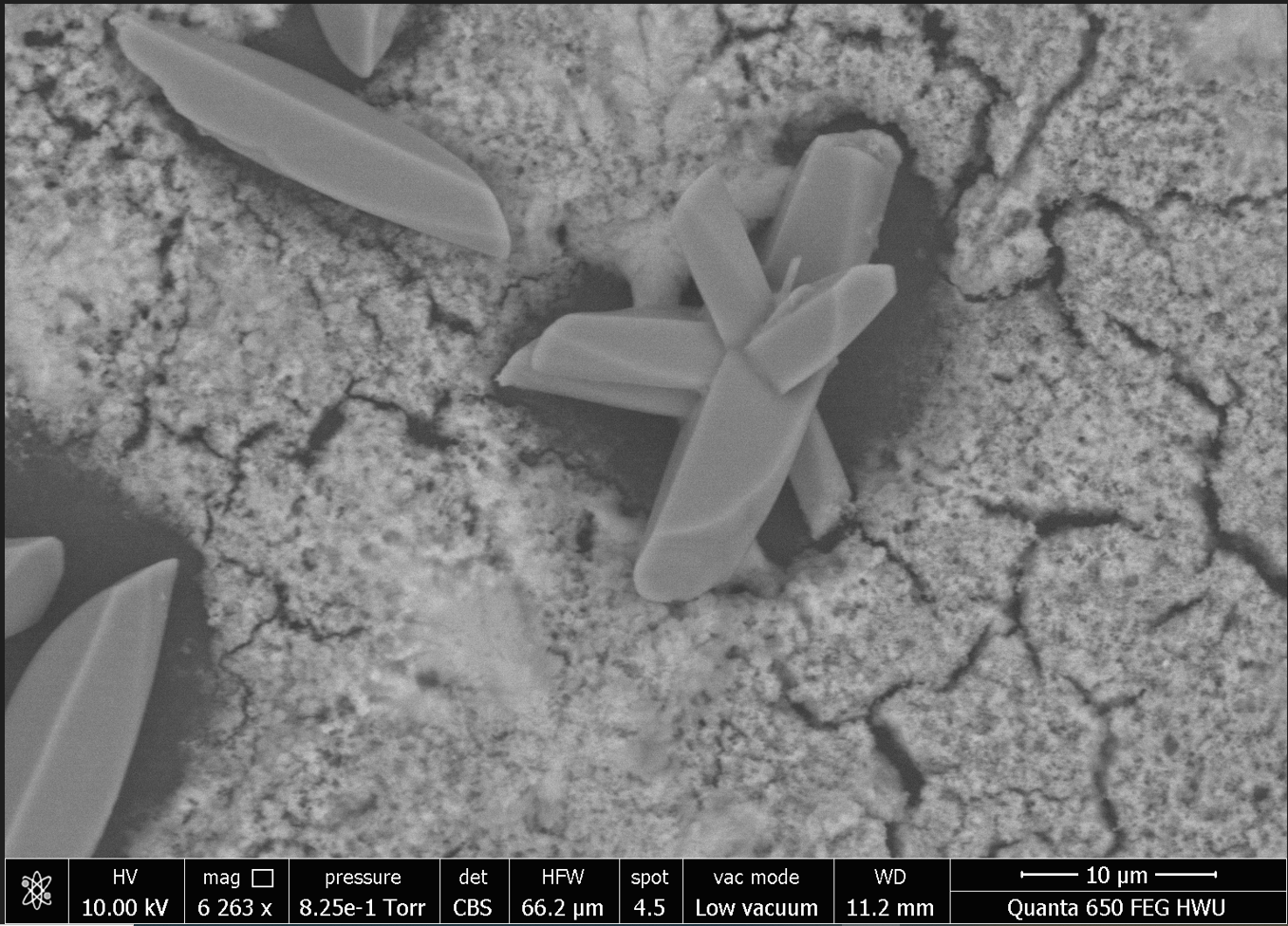Crystal Ocean

Summary
Description
Approaches are required to remove CO2 from the atmosphere, to help prevent climate change, and these will need to operate at a very large scale by mid-century. Ocean alkalinity enhancement (OAE) is one approach that has considerable potential but has received very little research, such that proposals have sought to adapt existing technologies or supply chains (e.g., lime addition, electrochemistry), but these have a wide array of engineering restrictions and environmental considerations. Crystal Ocean attempts to overcome many of these restrictions by creating novel materials that are specifically tailored for OAE, thus maximizing the benefits of existing proposals while minimizing their limitations.
In more detail, work in this field has largely focused on adapting existing materials or processes for OAE, but previous work has indicated that these are associated with a high energy input which translates to high environmental impact. Crystal ocean will develop novel and energy-friendly production processes for creating ‘ideal’ materials specifically for OAE. By avoiding the engineering challenges and environmental impacts of existing approaches, these materials could be game-changing.
Project Publications
Renforth, P., Baltruschat, S., Peterson, K., Mihailova, B. D., & Hartmann, J. (2022). Using ikaite and other hydrated carbonate minerals to increase ocean alkalinity for carbon dioxide removal and environmental remediation. Joule, 6(12), 2674-2679.
Eisaman, M. D., Geilert, S., Renforth, P., Bastianini, L., Campbell, J., Dale, A. W., … & Rønning, J. (2023). Assessing the technical aspects of ocean-alkalinity-enhancement approaches. State of the Planet, 2, 1-29.
Bastianini, L., Peterson, K., & Renforth, P. (2023). Novel method of ocean alkalinity enhancement using ikaite and other hydrated carbonate minerals (No. EGU23-17368). Copernicus Meetings.
Conferences



